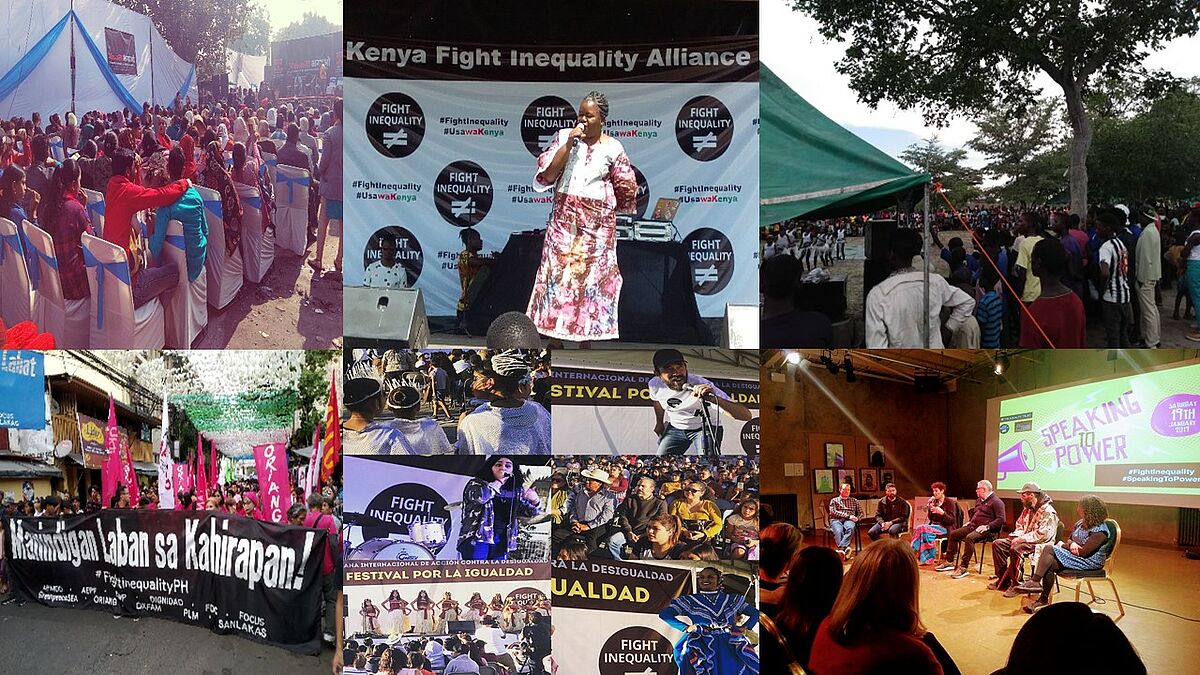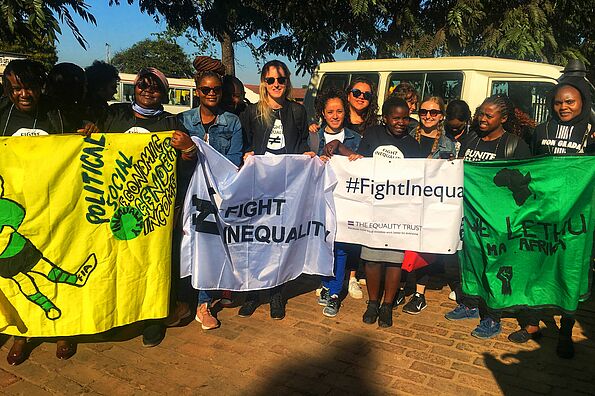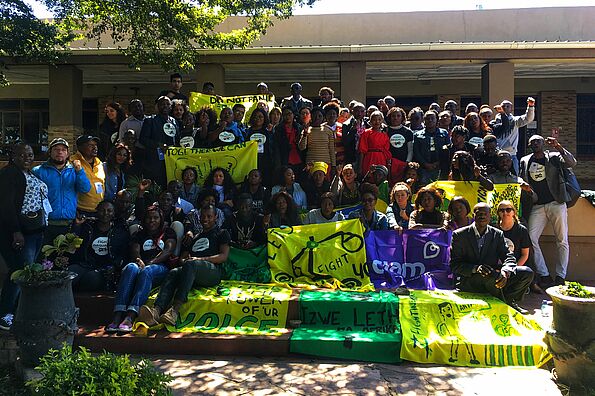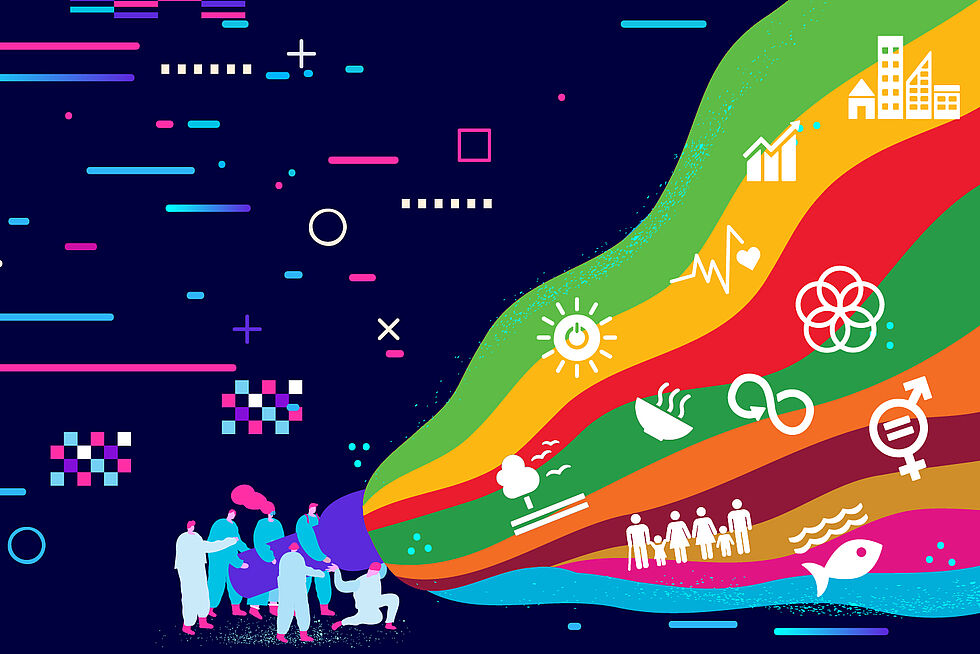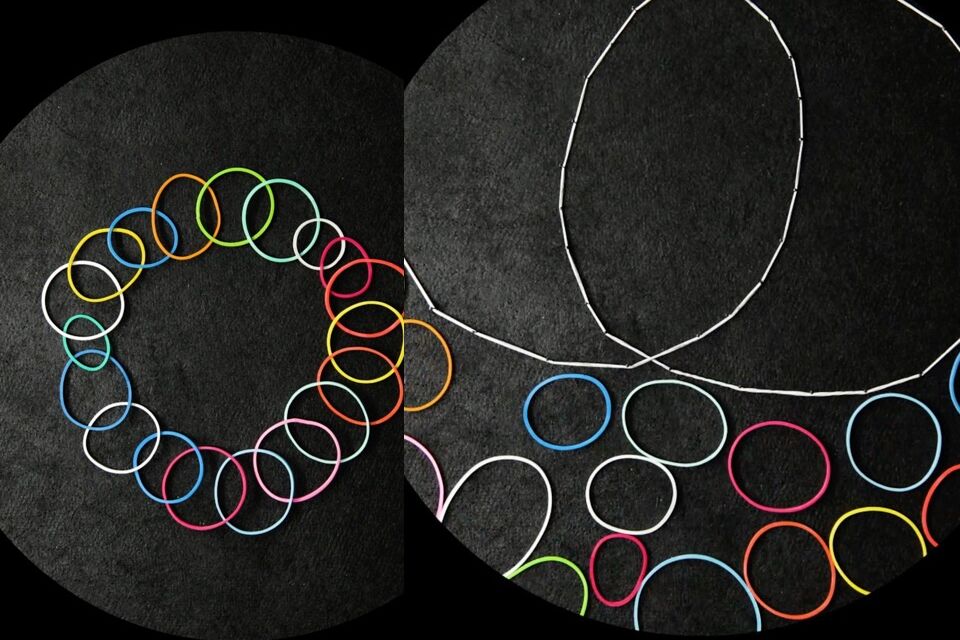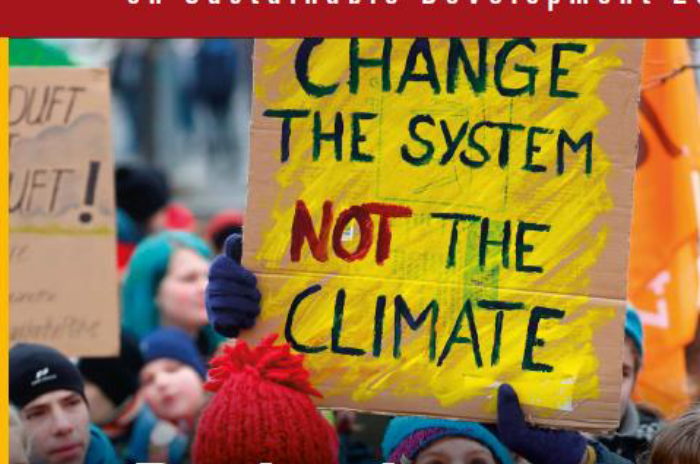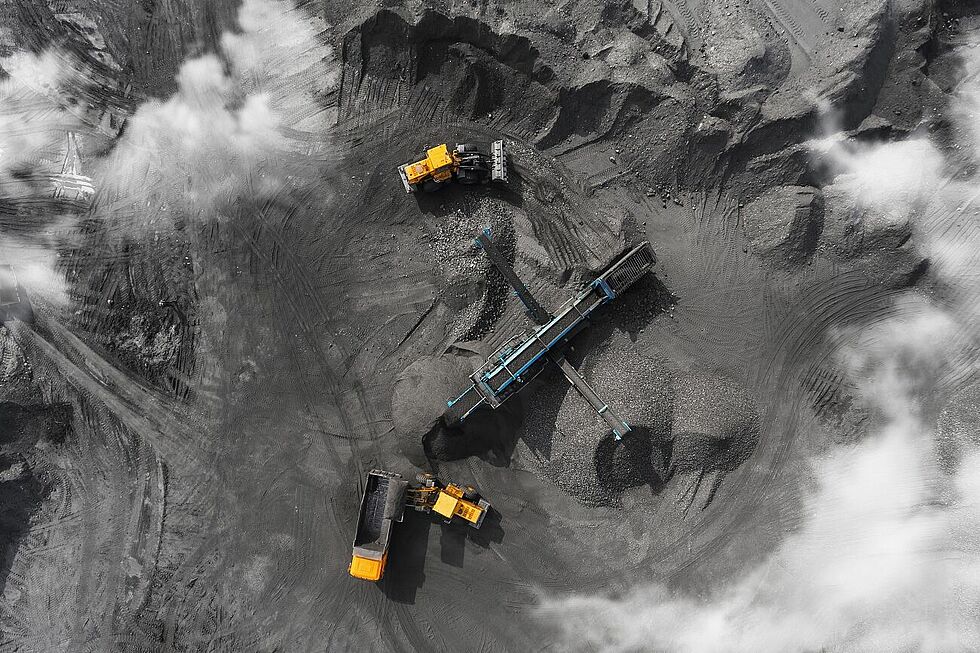Joining forces across different inequalities helps fight for change
“The Fight Inequality Alliance is a global movement that rose up in response to the concentration of power and wealth in the hands of a small elites,” says Jenny Ricks, global convener of the Alliance.
Reducing inequality is one of the central pledges of the 17 Sustainable Development Goals of the 2030 Agenda. And it is a global policy priority for a reason! Highest-income groups worldwide have disproportionately benefited from recent economic growth, while others are left behind. In 2018, the wealth of the world’s billionaires increased $900 billion and 26 people owned the same as the 3.8 billion people who make up the poorest half of humanity (link).
http://www.fightinequality.org/Ricks spoke with FES Connect from her home in Johannesburg, following a global gathering of the alliance in Kitwe, Zambia.
What is the Fight Inequality Alliance and how did it come to be?
The Fight Inequality Alliance is a global movement to counter the excessive concentration of power and wealth in the hands of a small elite and achieve a just, equal and sustainable world.
We are a growing group of leading international and national non-profit organizations, human rights campaigners, women’s rights groups, environmental groups, faith-based organizations, trade unions, social movements and other civil society organizations that have come together to fight the growing crisis of inequality.
The global inequality crisis is reaching new extremes and undermining global efforts to end poverty, discrimination and marginalization, advance women’s rights, defend the environment, protect human rights and democracy, prevent conflict, and promote fair and dignified employment. The alliance started because the nature and scale of the crisis demanded a more concerted response.
Inequality is really about power. Privilege and wealth are being used to push an economic and social system shaped to serve the narrow interests of powerful elites, at the expense of people as a whole and the planet. We have to re-balance those power relationships to truly fight inequality.
What epitomizes most adequately the growing crisis of rising inequality?
For me, both the big picture and the personal things tell you how inequality has reached a crisis level. The headline-grabbing statistics are well known, such as how last year 26 people owned the same as the 3.8 billion people who make up the poorest half of humanity. But inequality is also experienced very personally for us all—whether it is a lack of income or decent job opportunities, the exploitation of women, poor public service delivery, rising mental health problems, levels of violence in your society, the impacts of runaway climate change and many, many more. We are only now starting to connect how these are all actually inequality issues at root.
How do you plan to counter it?
History teaches us that given the scale of the challenge, to achieve change we have to work together across organizations, silos and borders and form a mass, people-powered movement.
The alliance is built from a recognition that all inequalities (of gender, race, class, caste and so on) are intersectional and reinforce each other.
We start by supporting the ongoing work of affected communities and movements, responding to the local realities of the inequalities people are experiencing. As much as research and analysis are important, the fight against inequality will be won by deepening people’s collective power and advancing practical actions that shift power. Last week for example, we were in Kitwe, Zambia for our annual global gathering as an alliance. Whilst there, we visited and offered solidarity to a local movement in Kankoyo who are members of the national Fight Inequality Alliance in Zambia. Kankoyo has been ravaged socially and environmentally by a Glencore-owned mine next door (link). We are supporting their demand to be relocated to another area.
Tackling inequalities requires influencing policies, the narratives which drive policies, and the balance of power and voice in any society. So national action is primary, and continental and global action are vital complements to reinforce it to help achieve both a shift in narrative and changes in policy as well as develop on-the-ground organizing. Those organizing at the frontlines of inequality—young people, women’s rights organizations and social movements —are central to strengthening civil society and its impact.
Do you intend to build a broader coalition?
Of course! The alliance membership is growing rapidly in many different countries. In our global week of action this January, timed to coincide with the World Economic Forum in Davos, and to be a counter-narrative to it, large mobilizations took place across the world, as well as in new countries for us like Afghanistan. We're organizing in more than 30 countries. But it needs to keep growing, as fighting inequality involves all of us. The larger the membership, the bigger our collective voice both nationally and globally.
What do you struggle with when organizing a growing global movement?
Two key challenges come to mind. First, this is a long struggle we are undertaking, with radical goals. And real transformation takes time, so we have to ensure we stay motivated through the inevitable ups and downs and celebrate the successes we have. Another struggle is to enable people to really connect across issues, silos and organizations and find common agenda to fight the root causes of inequality. But there is huge power when we do, and this is happening more and more across the world. So in that sense we are already taking big steps forward with the alliance and this gives me huge optimism.
What do you wish you had more of to succeed in the goals of the Alliance?
Mostly resources, both human and financial. The work of real organizing from the grassroots is where much of the work takes place. Deepening and strengthening the collective power of people is the foundation on which our collective struggle is built. But it is time-consuming and intensive work that needs resourcing. And now that we are moving from the foundational stage of the alliance to a more regular and robust action mode, we need longer-term strategic funding to serve our growing alliances and plans at all levels.
Who can become part of the Alliance and how can they join?
If the global vision of the alliance resonates with you and your organization, there are numerous ways to contribute to the fight:
- Join your national alliances by emailing info(at)fightinequality.org with your name, organizational name, country and city;
- Sign up to receive updateson events and news about the Fight Inequality Alliance;
- Join the conversation by following #FightInequality on Facebook and Twitter.
For more information on the cooperation with the Fight Inequality Alliance contact the FES Global Policy and Development Department.
